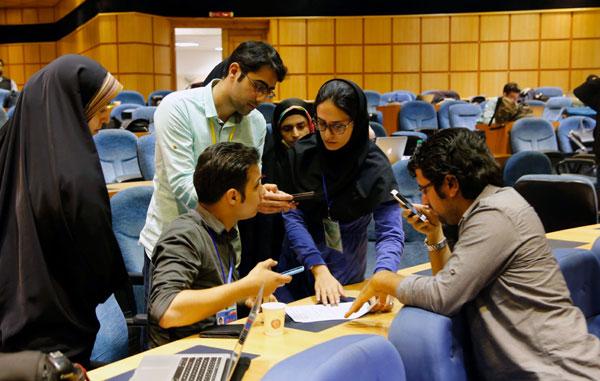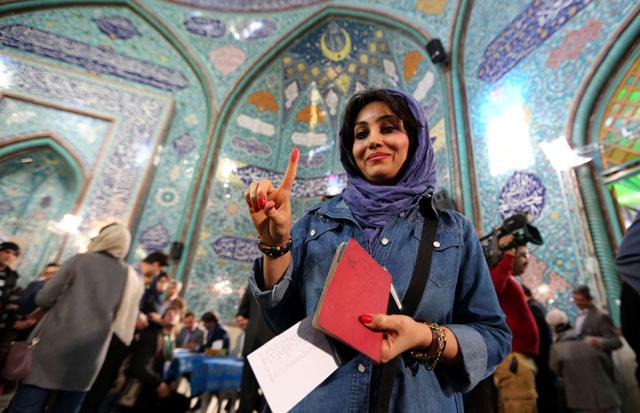You are here
Hardliner elected head of key Iran oversight body
By AFP - May 24,2016 - Last updated at May 24,2016
TEHRAN — Iran’s Assembly of Experts chose another hardline cleric as its chief on Tuesday, keeping the powerful religious body in ultraconservative hands despite gains by reformists and moderates in February elections.
The assembly oversees the work of Supreme Leader Ayatollah Ali Khamenei and would choose the 76-year-old’s successor if he dies during its eight-year term.
Its 88 members elected Ayatollah Ahmad Jannati, 89, as chairman, defeating two conservatives.
The cleric is one of the few hardliners who secured re-election in the February vote that saw a landslide for reformist and moderates in the capital and big gains elsewhere.
The hardliner also chairs the Guardian Council, the body which vets all candidates for public office in Iran and has a veto over all legislation.
The council sparked controversy in February’s election by disqualifying thousands of hopefuls, most of them reformists.
The 88-member assembly has proven well beyond the reach of reformists, although moderate President Hassan Rouhani and heavyweight former president Ayatollah Akbar Hashemi Rafsanjani topped the election to it in Tehran.
Rafsanjani, a senior figure in the moderate and reformist camp, did not have enough confidence to run for the chairmanship of the conservative-dominated body. Media said he could not even muster a quarter of the votes.
The reformists had hoped to unseat Jannati in February’s election but he scraped through to take the last of the 16 seats reserved for Tehran.
Other prominent hardliners were less lucky, including outgoing assembly chairman Ayatollah Mohammad Yazdi and Ayatollah Mohammad Taghi Mesbah-Yazdi, a close adviser to ex-president Mahmoud Ahmadinejad.
In the vote for the assembly chairmanship, the reformist camp reportedly threw its support behind Ayatollah Ebrahim Amini, a moderate conservative who is a prayer leader in the Shiite clerical centre of Qom.
But he won just 21 votes to Jannati’s 51.
The new assembly could have a major say in Iran’s future political direction because of Khamenei’s advancing age.
Under Iran’s political system, the supreme leader has the final say on all matters of state, and has far more power than the president.
Khamenei has held the post since 1989 when he succeeded revolutionary leader Ayatollah Ruhollah Khomeini on his death and has dominated Iranian politics ever since.
In a message to the incoming assembly, Khamenei called on its members to remain loyal to the principles of the Islamic revolution of 1979.
“The responsibility is all-around and precise protection of the Islamic and revolutionary identity of the ruling system,” he said.
The assembly vote on February 26 coincided with a parliamentary election in which Rouhani allies in the moderate and reformist camp made substantial gains.
Their List of Hope swept all 30 seats in the capital, denying conservative leader Gholam-Ali Hadad Adel re-election.
Many of the leading parliamentary opponents of Rouhani’s policies, including his signature nuclear deal with the United States and other major powers, lost their seats.
Related Articles
TEHRAN — Reformist allies of moderate President Hassan Rouhani won all 30 parliamentary seats in the Iranian capital, a major boost Sunday t
TEHRAN — President Hassan Rouhani won a resounding vote of support and his moderate allies made a strong showing in high-stakes elections th
DUBAI — Four-fifths of candidates for the body that will choose Iran's next supreme leader have withdrawn or been disqualified including a g


















